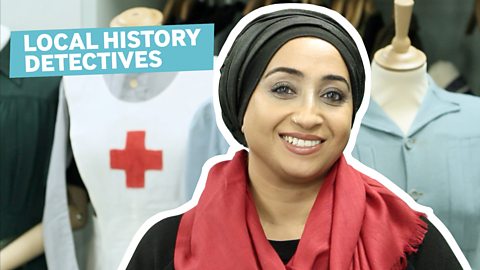History is all around us.
Look out of the window. What is the oldest thing you can see?
To be a historian, you have to act as a detective.
Search for clues about the past and put them together to find out what happened.
Being a historian is surprisingly similar to being a detective. Find out what skills you need to be a historian and whether or not all sources are reliable.
You’ll get more detailed answers if you ask questions about particular topics, such as toys, transport, or school life.
Record your interview, so you can listen to those details again.
Make a list of questions to ask. Include some that start with each of these words: how, when, why, what, who and where.
Closed questions, which have simple factual answers, help to get people talking - but you usually won't get a lot of information.
"How old were you when you started school?" is a closed question.
Open questions are ones that ask people to give their views. They encourage people to talk about their feelings.
"What did you like in your first classroom?" is an open question.
When you interview someone, it's important to be prepared. You need to know what type of questions to ask, and how to interpret the answers.
Your home town is full of historical sources and places where you can find clues about the past. There are six sources just in this street. Can you find them?
Did you find all six sources? You can click on the church, the war memorial, the sign, the statue, the library and the museum.
Find out below how to use an archive, a place where historical material is collected and stored.
Joe Crowley explains how to use an archive
Can you spot Stone Age, Iron Age, Roman and Tudor remains on this map of Avebury?
Did you find all of the historical sites? Click the question mark button to reveal all of the places.
Bitesize Primary games. game
Play fun and educational primary games in science, maths, English, history, geography, art, computing and modern languages.

More on Understanding evidence
Find out more by working through a topic
- count2 of 2
